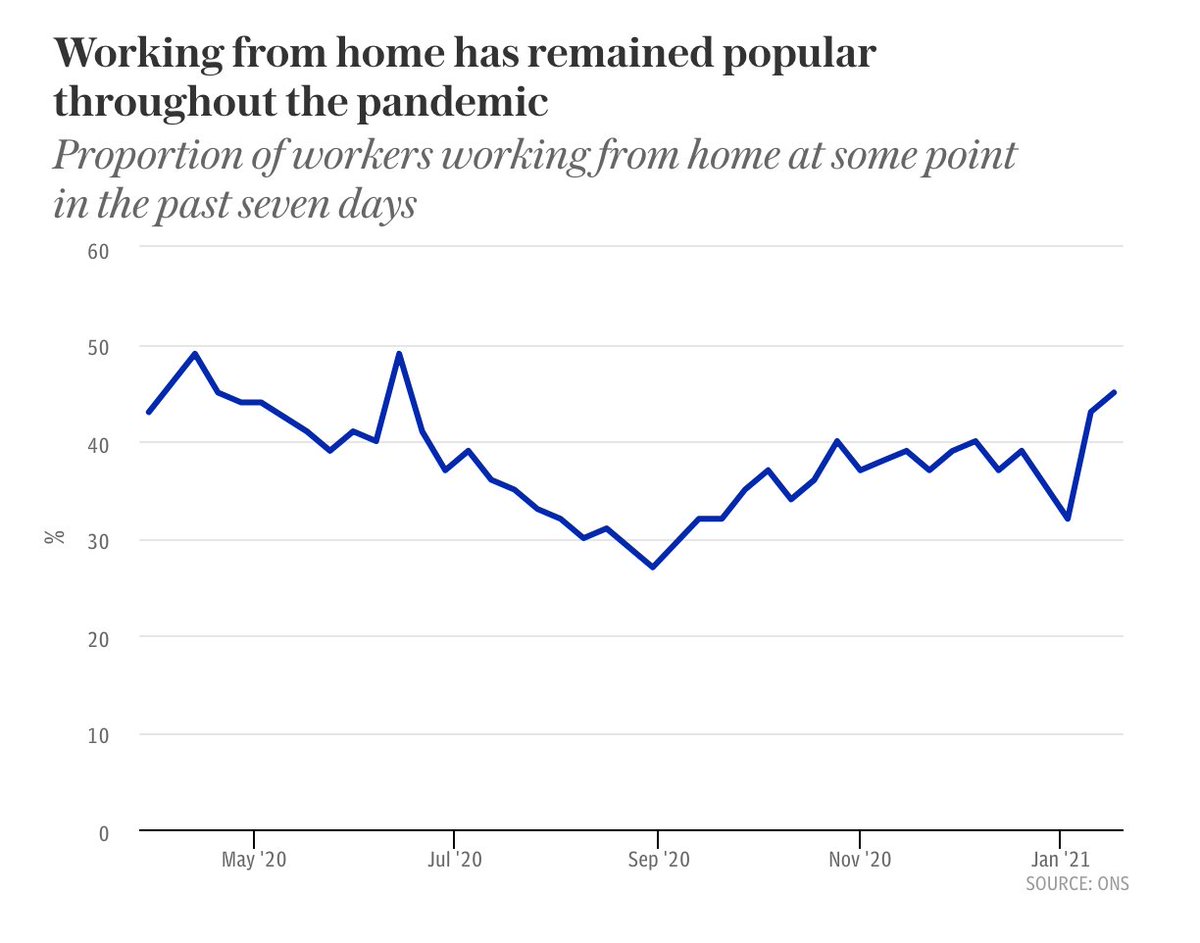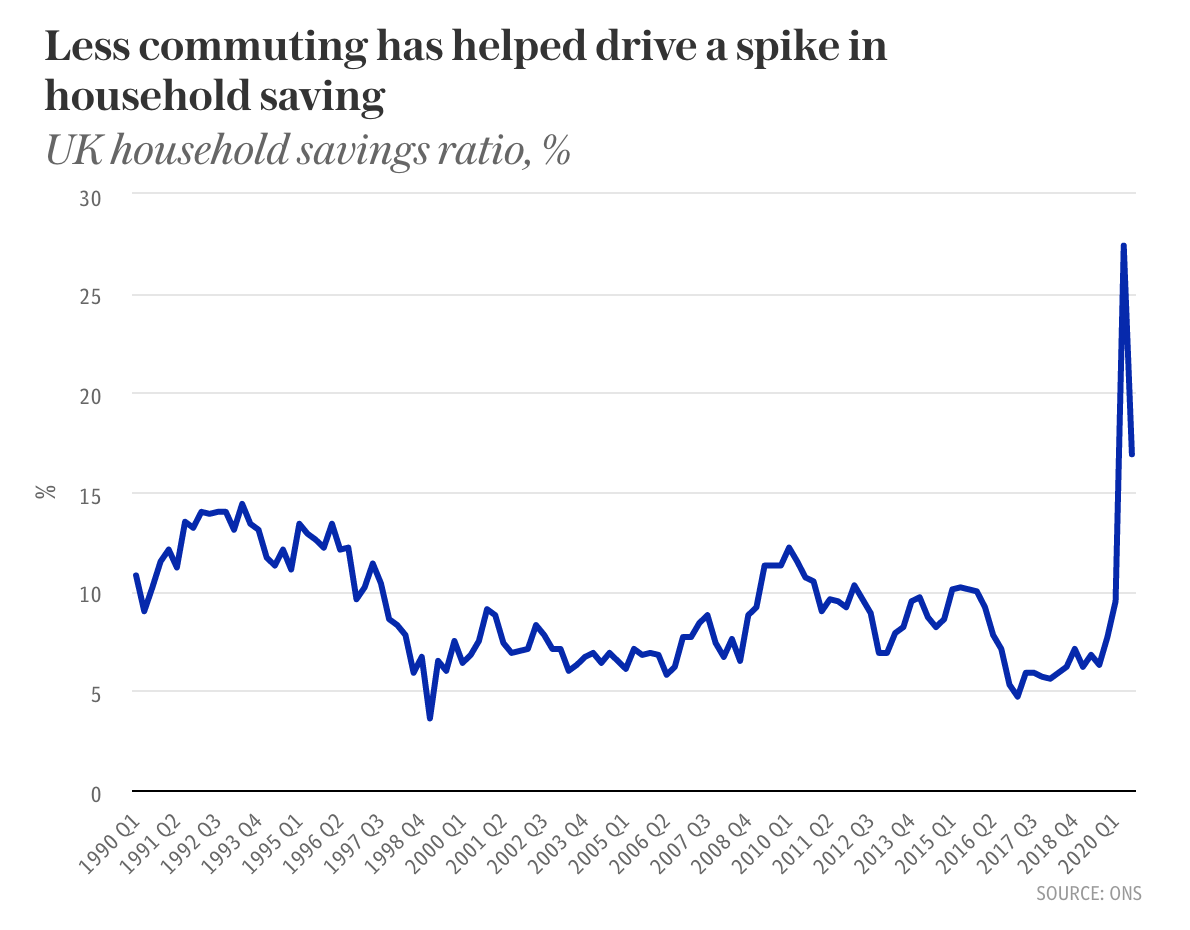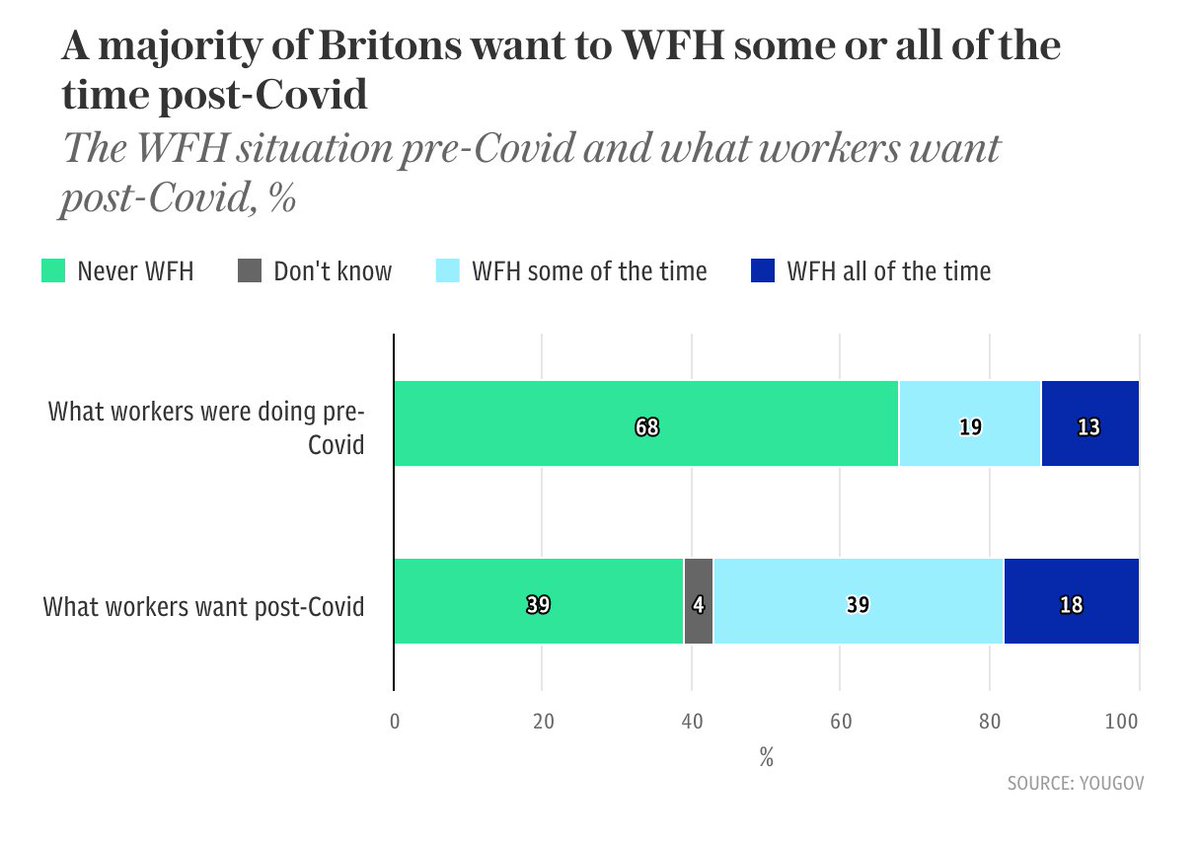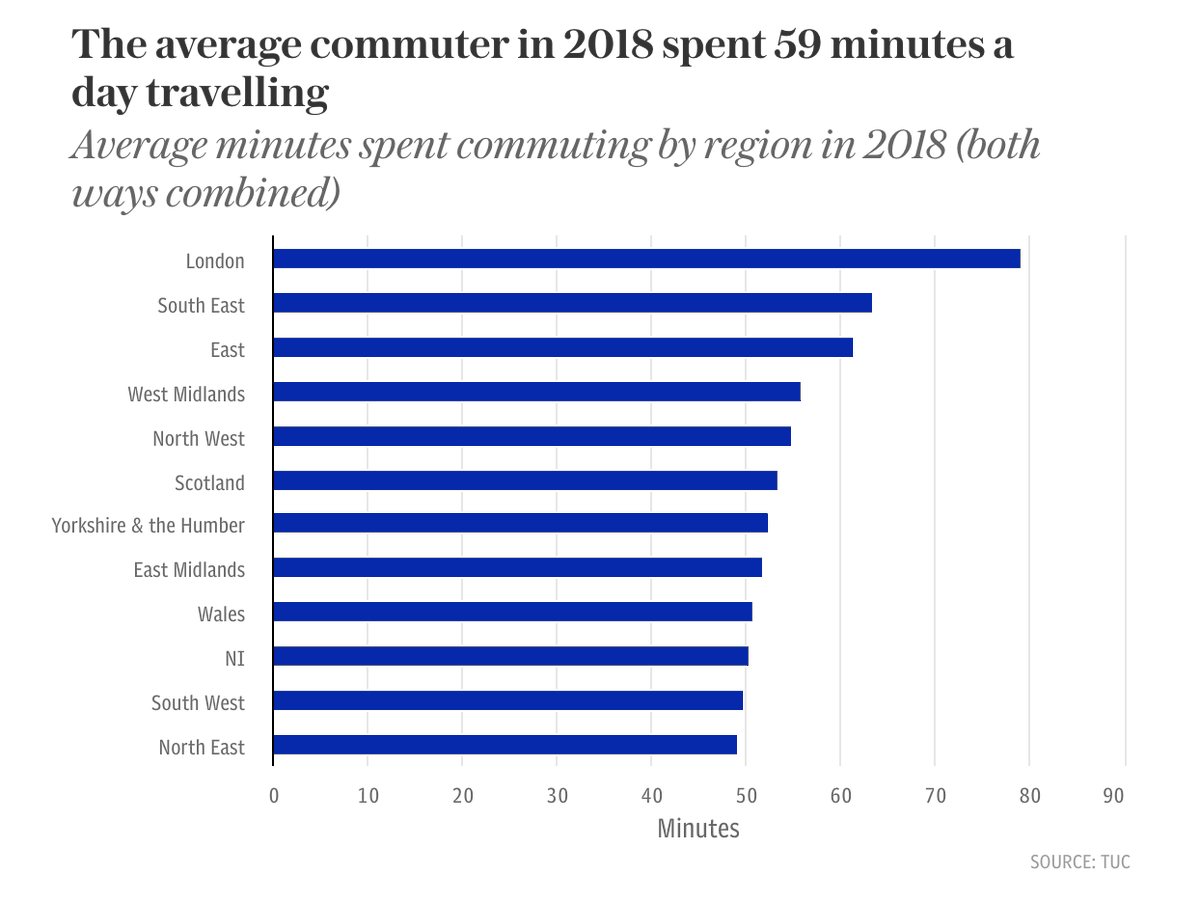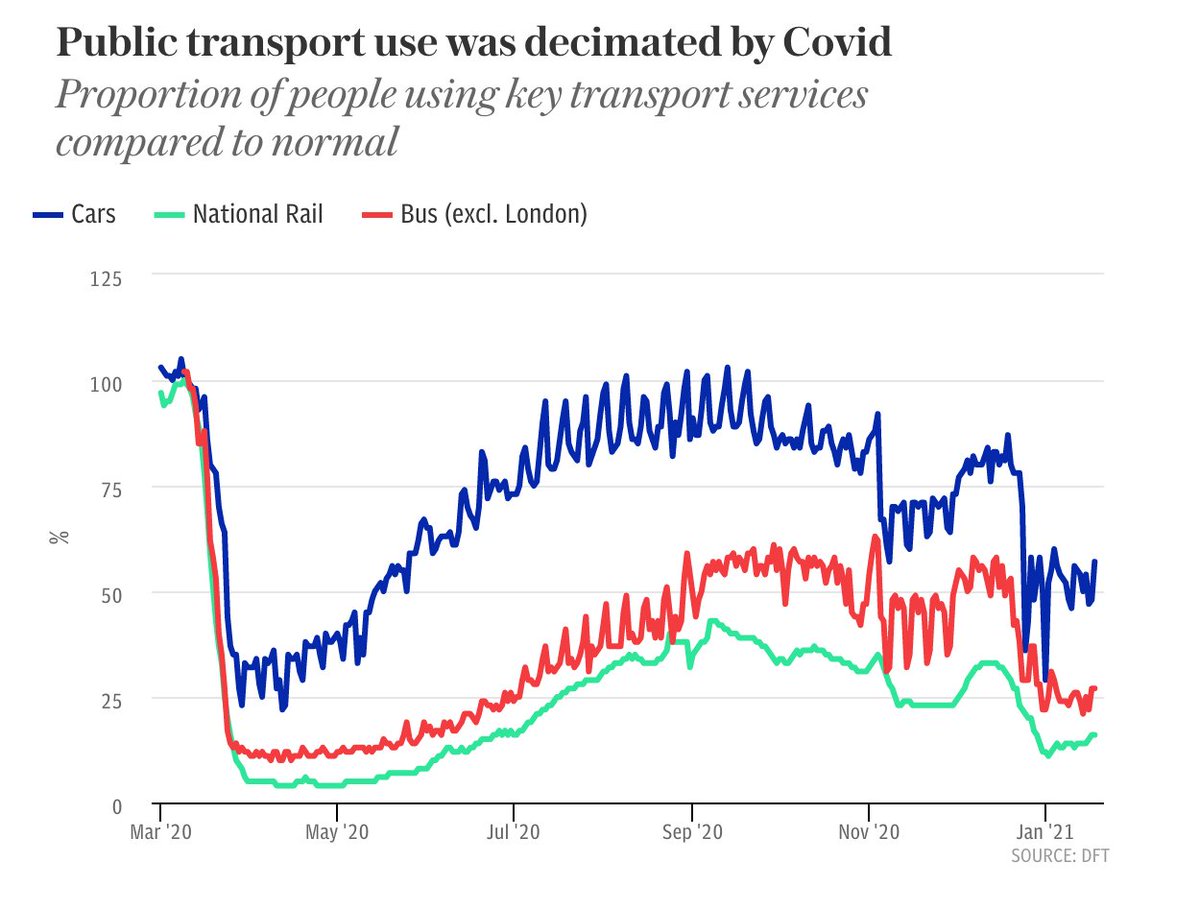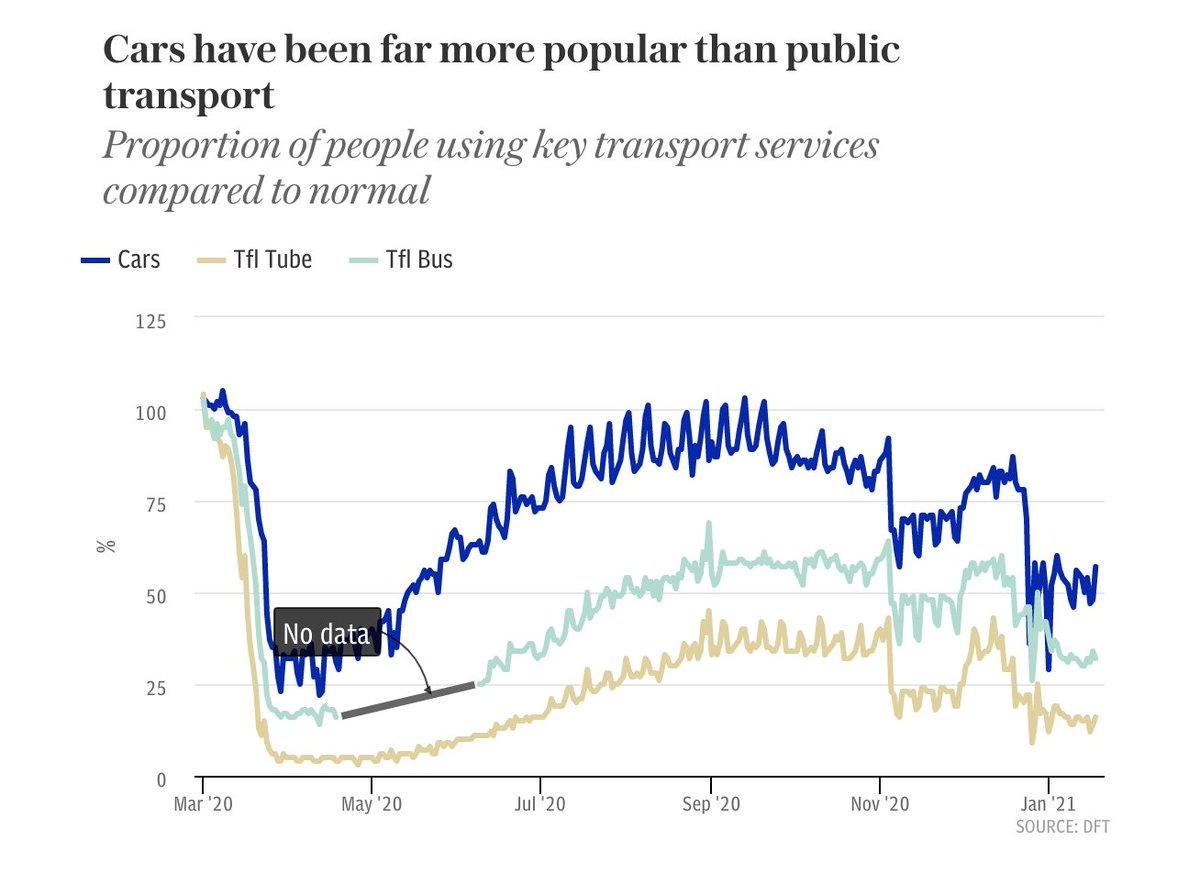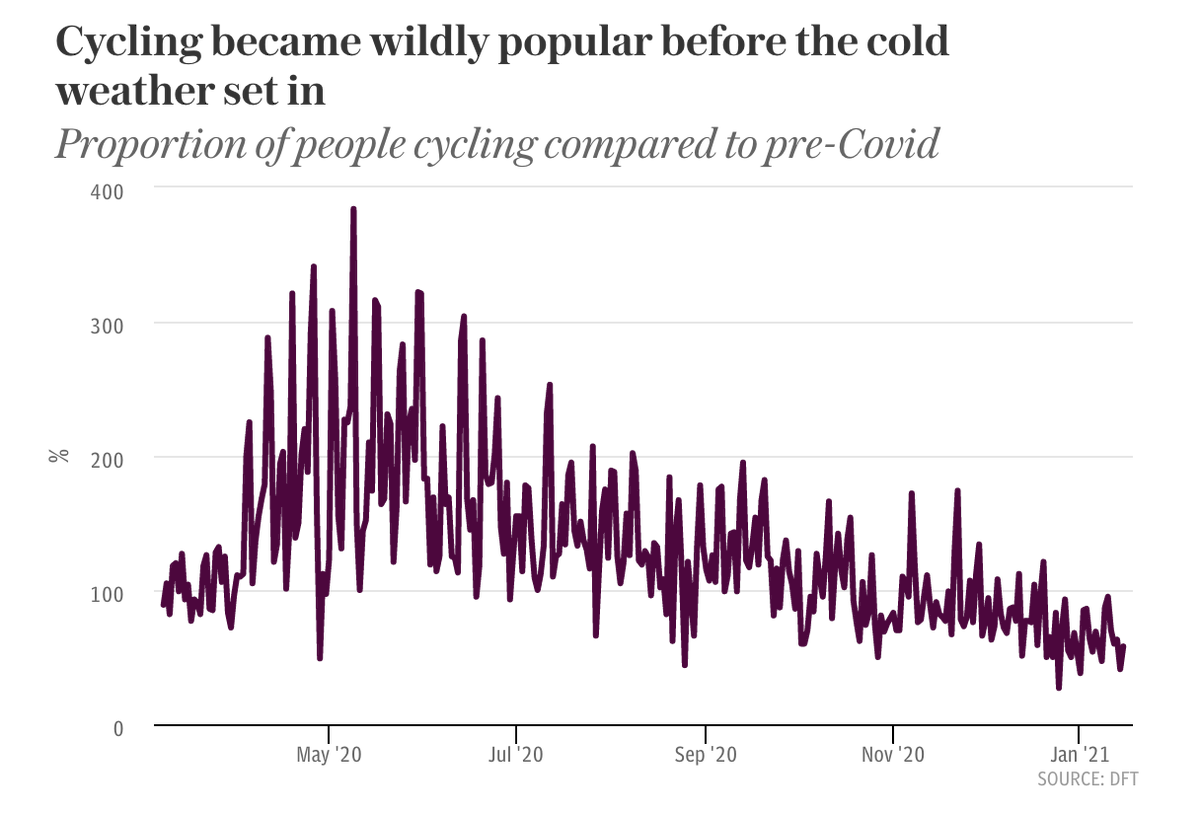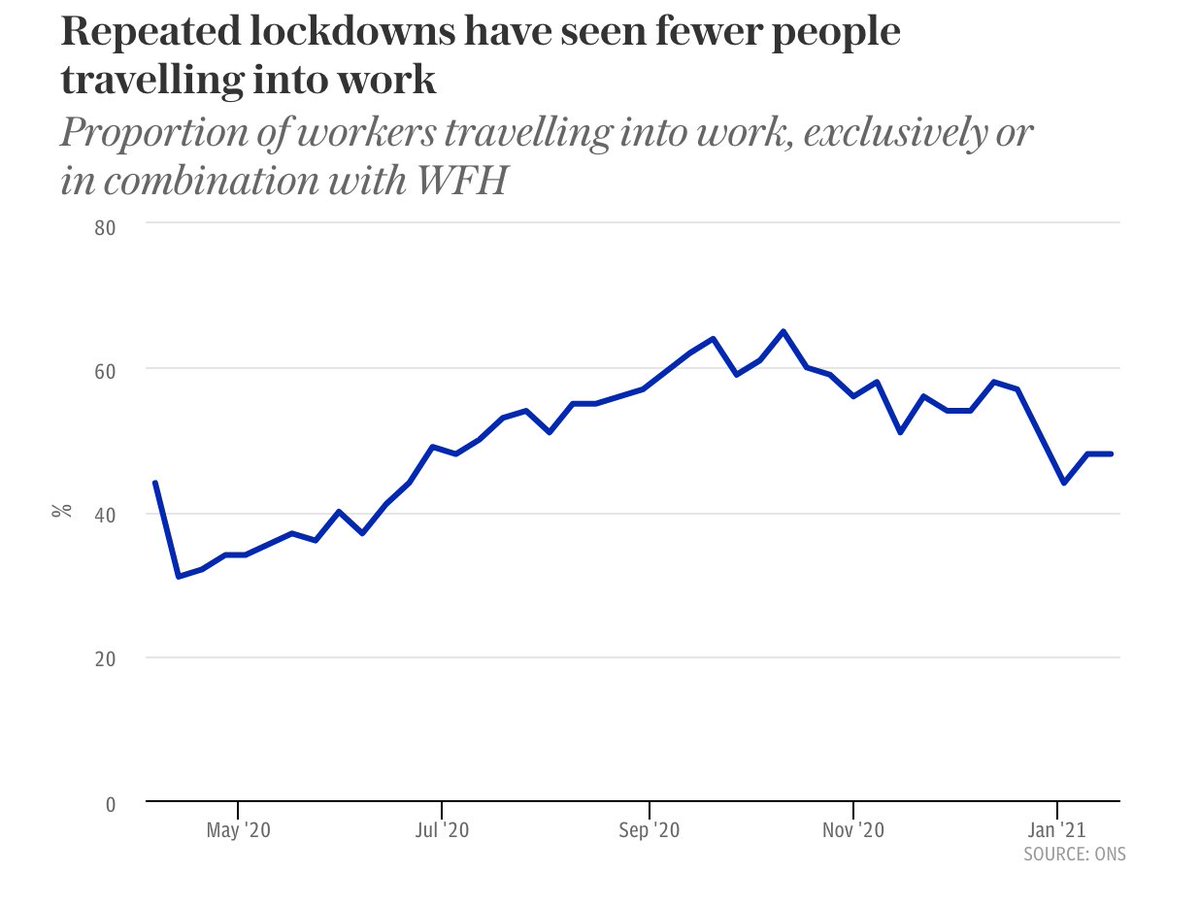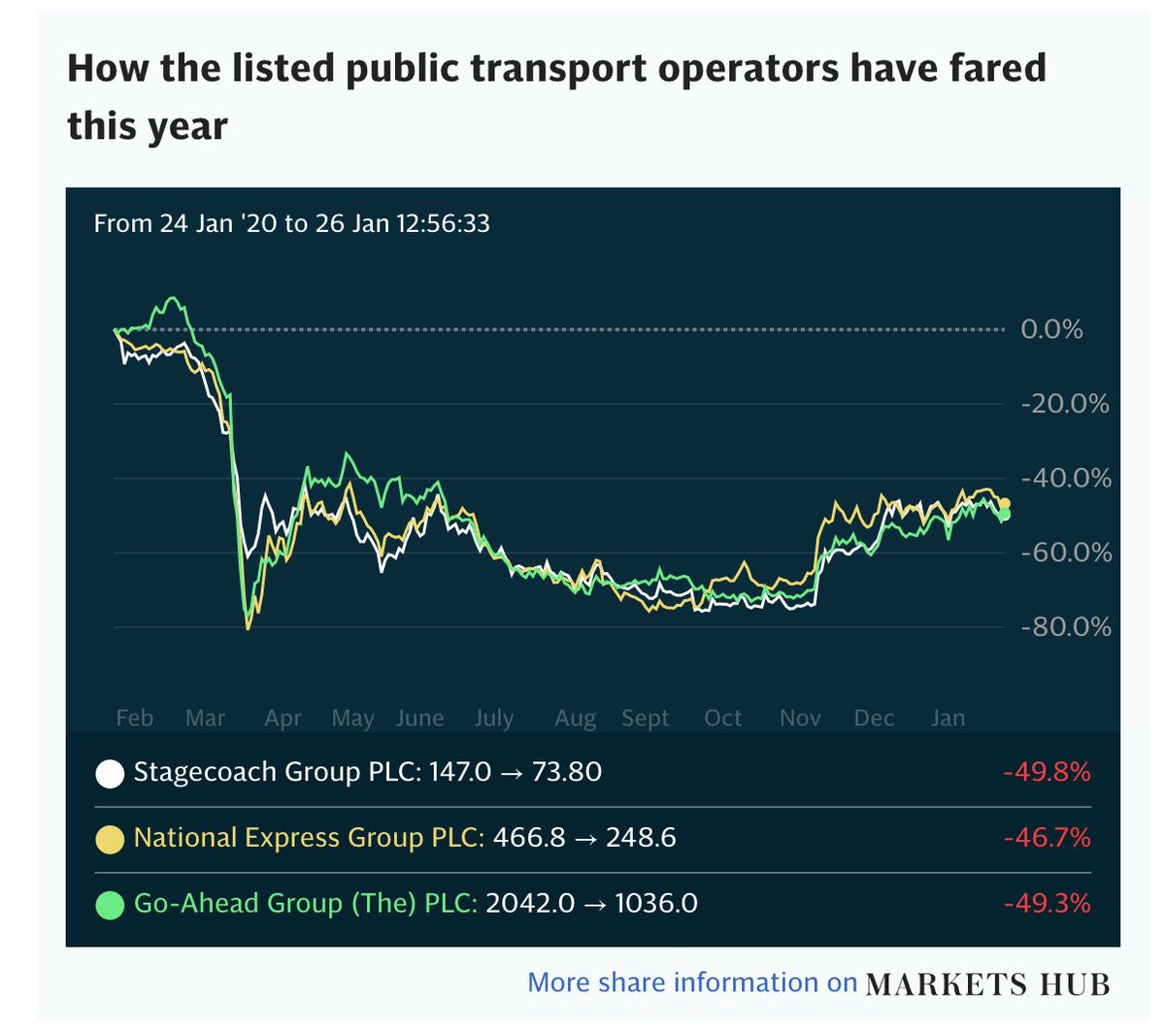Travelling to work has become a thing of the past for many https://www.telegraph.co.uk/business/2021/01/27/daily-commute-must-evolve-lure-back-britains-covid-aristocracy/
According to the @ONS, before the arrival of coronavirus only 5% of Britons regularly worked from home.
By June 14 last year, 49% had done so in the previous week
By June 14 last year, 49% had done so in the previous week
One reason rail and bus travel may never go back to the way it was is that commuters have saved too much money.
A commuter travelling from Reading to London would spend £4,736 on an annual rail season ticket.
Those prices are due to rise by 2.6% from March 1
A commuter travelling from Reading to London would spend £4,736 on an annual rail season ticket.
Those prices are due to rise by 2.6% from March 1
“Some employers will use this home-office balance now as a differentiator – ‘come and work for us and you can work from home more’'" - Mike Hewitson, head of policy at passenger watchdog Transport Focus
What's your preferred mode of working? 

"We have done a lot of analysis on how a bus fills up and everybody on every single attempt does their best not to sit next to somebody until they really have to" - Sam Ryan, chief executive of bus company, Zeelo
Passenger numbers dropped to about 10 to 15% in rail and down to about 20% in bus, according to Katy Taylor, chief strategy and customer officer at Go-Ahead Group, which runs train operators GTR and Southeastern, as well as a number of regional bus companies
More than 57% of UK drivers say having access to a car is more important than before the pandemic, with reluctance to use public transport in the future at its highest level in 18 years, according to research for @TheRAC_UK
. @transportgovuk has pledged to spend £2bn on cycle lanes across the country over the next five years to encourage people to ditch their cars
In September, the @ONS published data revealing that, of those planning to work from home all or part of the time, 12% have considered moving to a different location, with rural or coastal areas the most common
“We could see people making longer journeys to and from their workplace – travelling a greater number of miles but less frequently,” says Bob Powell, customer proposition director at @AvantiWestCoast, which runs the West Coast Main Line
“I wouldn’t be surprised if the railways end up becoming nationalised” - Richard Cresswell, director of London recruitment business @HealthRecruitN

 Read on Twitter
Read on Twitter